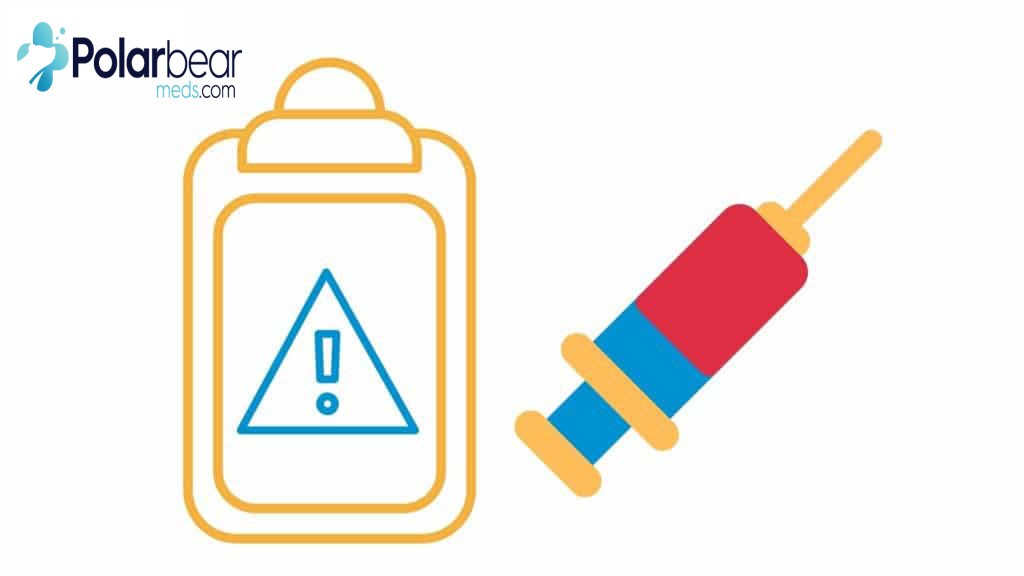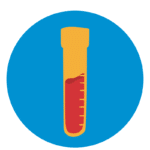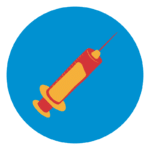Common Diabetes Complications: How to Prevent Them?

With careful treatment, a person with diabetes can live a long and happy life. Medication is required when you have diabetes, but so is day-to-day care for your body and overall health.
When not adequately managed, diabetes can lead to various complications that range in severity. The number one way to prevent these complications is to ensure that you have regular access to insulin.
ArcticMeds is an online prescription referral service that makes it easy to get safe, secure, and affordable insulin shipped from Canada, which is considerably cheaper than insulin from the US.
Common Diabetes Complications
When you have consistent access to safe and effective insulin and maintain good daily habits, you can help prevent some of the most common diabetes complications. These are the most common diabetes complications cited by the American Diabetes Association.
 Skin Complications:
Skin Complications:
While skin conditions like bacterial and fungal infections are common for people with diabetes, they can be experienced by just about anyone. That said, some skin conditions predominantly occur in those who have diabetes as they are directly related to blood sugar levels and cholesterol. These skin conditions include:
- diabetic dermopathy
- necrobiosis lipoidica diabeticorum
- diabetic blister
- eruptive xanthomatosis
 Eye Complications:
Eye Complications:
The unfortunate reality is that people with diabetes are at a higher risk of blindness, peripheral neuropathy, and other eye complications. That said, most diabetics will only experience minor eye conditions caused by high blood sugar levels managed by regular checkups.
 Nerve Damage:
Nerve Damage:
Diabetic neuropathy refers to nerve damage that is brought upon by diabetes. Nerve damage is common for those with diabetes as a result of the impacts of high blood sugar. For example, people with high blood sugar can experience nerve damage in their feet due to reduced blood flow.
 DKA (Ketoacidosis) & Ketones:
DKA (Ketoacidosis) & Ketones:
DKA is the most severe complication experienced by people with diabetes. Your cells need glucose for energy, and when they don’t get the glucose they need, they burn fat to get this energy. This produces ketones, which causes acid in the blood.
High levels of ketones can poison your body, which is why people with diabetes take insulin to regulate their blood sugar levels.
Other diabetes complications include:
- Kidney Disease
- High Blood Pressure
- Stroke
Preventing Diabetes Complications
There are habits that people living with diabetes need to maintain to minimize the risks of diabetes complications.
 Pledge to Manage Your Health
Pledge to Manage Your Health
Diabetics should have a care team to give them support, but they also need to be personally committed to managing their health. There is a lot of information to know and sticking to a healthy diet and fitness routine requires dedication.
Monitor your blood sugar levels, abide by your doctor’s instructions, and stick to the prescribed health regimen. A diet with the foods your body needs, such as fruits, vegetables, whole grains, lighter dairy products, beans, legumes, fish, and healthy fats will improve how you feel.
 Avoid Smoking
Avoid Smoking
Smoking cigarettes is bad for everybody’s health, but smoking increases your risk of type 2 diabetes and can lead to diabetes-related complications, including:
- Stroke
- Heart disease
- Eye disease, potentially causing blindness
- Nerve damage
- Kidney damage
- Reduced blood flow in the legs and feet
 Monitor Your Blood Pressure & Rein in Your Cholesterol Intake
Monitor Your Blood Pressure & Rein in Your Cholesterol Intake
Diabetes can damage your blood vessels, and so can high blood pressure. High cholesterol can wreak even worse havoc. In conjunction with diabetes, high blood pressure can lead to a heart attack, stroke, or other potentially fatal conditions. A healthy diet and regular exercise will keep your blood pressure and cholesterol levels where they need to be.
 Ensure Your Vaccines Are Up to Date
Ensure Your Vaccines Are Up to Date
People with diabetes are more likely to contract other illnesses and need to ensure they are vaccinated against:
- Flu
- Pneumonia
- Hepatitis B (appropriate for adults younger than 60 who have never received the vaccine before)
Talk to your doctor about whether you need any other vaccines, and to confirm that the ones above are right for you.
 Brush Your Teeth
Brush Your Teeth
People with diabetes can be more susceptible to gum infections. Use fluoride toothpaste to brush twice a day, and floss daily too. See a dentist every six months and contact them if your gums bleed or look red or swollen.
 Tend to Your Feet
Tend to Your Feet
Due to the correlation between diabetes and foot conditions, it’s important to monitor your feet for pain, tingling, or loss of sensation. These can be a sign of reduced blood flow. Consider the ways that you can take care of your feet regularly:
- Wash your feet each day in room-temperature water. Don’t soak them, as this can cause dryness
- Carefully dry your feet, especially between the toes
- Inspect your feet for blisters, calluses, sores, redness, or swelling
- Never go barefoot, indoors or outdoors
- If you notice something on your feet giving you problems, call a doctor
For people with diabetes, your feet can be a window into your overall condition. Observe them carefully and treat them well.
 Moderate Your Alcohol Intake
Moderate Your Alcohol Intake
Depending on your consumption levels, and whether you eat, alcohol can cause high or low blood sugar. Drink in moderation only.
For women of all ages and men over 65, moderation means up to one drink a day. Men aged 65 years or younger can have at most two drinks a day. Alcohol should always be consumed along with food.
It’s important to include the calories consumed in alcohol when tabulating your daily caloric intake. People who use insulin and drink alcohol are especially prone to low blood sugar.
De-Stressing is Important
Life can be stressful, and it’s harder to manage a care routine when you’re feeling overwhelmed. Learning to manage stress will make it easier for a diabetic to follow all the other steps necessary to protect their health.
Ensure you get good sleep every night, as the benefits of being well-rested can’t be overstated.
Regular Access & Administration of Insulin
All the above tips are meant to supplement taking insulin regularly. ArcticMeds is an online prescription referral service partnered with Canadian pharmacies that makes affordable insulin more accessible for Americans.
Choose from our list of available options for insulin and other diabetic supplies. We deliver across America and send each package in insulated and refrigerated shipping to keep it cool. All our orders are processed in one business day, so you can get the medication you need quickly. For your convenience, you can order insulin online or by phone or fax.
We offer a free consultation by a pharmacist, as a prescription is required to order our products. ArcticMeds offers you all the insulin brands you could want, so you don’t need to look elsewhere.
Diabetes is a serious metabolic disorder, but it doesn’t have to be debilitating if you care for yourself properly. Keep the above tips in mind to help reduce any diabetes-related complications. ArcticMeds can help you access affordable diabetic products and supplies, but it’s prudent to augment this by adopting a lifestyle designed to meet your specific health needs.
